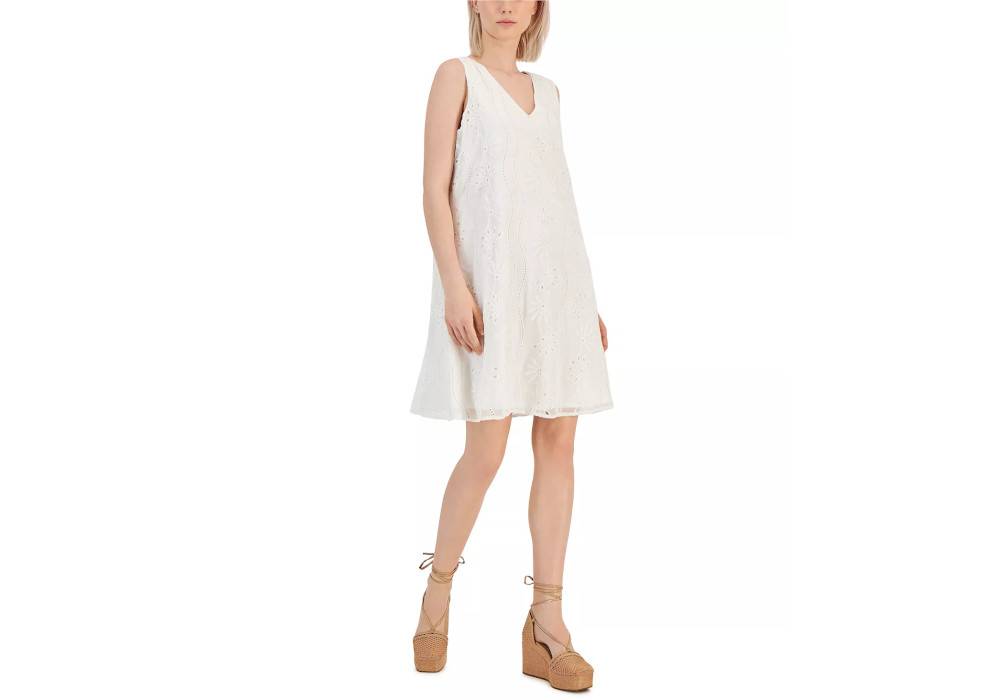
Macy's is an American fashion retailer founded in 1929 and headquartered in New York City, United States. It's one of the world's largest fashion goods retailers. It creates fast fashion for men, women, and children.
Macy's makes clothing, accessories, shoes, eyewear, jewelry, fragrances, and beauty products. American conglomerate holding company Macy's, Inc., owns Macy's and Bloomingdale's. It operates more than 720 stores and has approximately 130,000 employees.
Macy's believes fashion and style have always been a force for change and works to create a more equitable and sustainable future. It builds robust sustainability programs so that people and the planet can thrive together.
Panaprium is independent and reader supported. If you buy something through our link, we may earn a commission. If you can, please support us on a monthly basis. It takes less than a minute to set up, and you will be making a big impact every single month. Thank you!
Sustainability Rating: 3/10
Rating FAQ
Category: Clothing, accessories, shoes, bags, jewelry
For: Women, men, children
Type: Basics, dresses, denim, knitwear, activewear, underwear, loungewear, swimwear, outerwear, nightwear, maternity, bridal, sandals, sneakers, flats, heels, boots
Style: Casual
Quality: Low
Prices: $
Sizes: petite, 2XS-2XL, 0-14 (US), 2-16 (UK), 32-44 (EU), 4-18 (AU), plus
Fabrics: Cotton, linen, hemp, ramie, jute, lyocell, modal, viscose, cupro, acetate, polyester, nylon, spandex, polyethylene, polypropylene, acrylic, neoprene, polyurethane, rubber, leather, wool, silk, down
100% Organic: No
100% Vegan: No
Ethical & Fair: No
Recycling: Yes
Producing countries: not transparent enough
Certifications: BCI, GOTS, OCS, GRS, FSC, RDS, RWS, LWG, Oeko-Tex, Bluesign
Sustainability Practices
Macy's wants to be better and more efficient by looking at every aspect of its value chain to ensure the healthy functioning of our planet. However, the majority of its business remains detrimental to the environment.
Macy's is part of major international initiatives to promote sustainable raw materials and fibers. It's raising awareness of textile impacts and encouraging the use of more sustainable materials.
Macy's only uses a tiny proportion of organic materials such as organic cotton and hemp, or recycled materials such as recycled cotton, recycled polyester, and regenerated nylon.
Most of the fabrics it uses are either natural without relevant certifications, such as regular cotton or linen, or synthetic petroleum-based fibers such as polyester, nylon, acrylic, and more.
Macy's also uses a small proportion of semi-synthetic fibers or regenerated cellulosic fabrics such as Tencel lyocell, modal, acetate, and viscose.
Tencel is an eco-friendly fiber made with wood pulp from certified sustainable forests. But only a tiny proportion of the materials used by Macy's are environmentally friendly and sustainable.
Macy's doesn't publish a list of all its manufacturers and processing facilities on its corporate website. It doesn't disclose how it chooses its network of suppliers.
The 2022 Fashion Transparency Index gave Macy's a score of only 6% based on how much the group discloses about its social and environmental policies, practices, and impacts.
The American clothing retailer doesn't show any labor certification standard that would ensure good working conditions, decent living wages, health, safety, and other crucial rights for workers in its supply chain.
Macy's has a code of conduct that applies to all its suppliers and subcontractors based on the regulations set by the International Labor Organization (ILO).
Macy's assesses compliance with its Code of Conduct by conducting annual third-party audits with or without notice. It has comprehensive programs in place to ensure its private brand partners adhere to its standards.
Macy's doesn't use exotic animal skin, hair, fur, or angora. But it uses leather, wool, silk, and down feathers to manufacture many of its clothing pieces.
These animal-derived materials are cruel and unethical. They also harm the environment by producing greenhouse gases and waste. More sustainable alternatives exist.
Sustainability Goals
Macy's doesn't measure its energy usage, greenhouse gas emissions, chemical release, pollution, or waste across its supply chain. It doesn't have any sustainability science-based targets to improve in the future.
Reviews And Experiences With Macy's
Have you had (good) experiences with shopping at or the products of Macy's? Then leave us your rating below.
What We're Up Against
Multinational corporations overproducing cheap products in the poorest countries.
Huge factories with sweatshop-like conditions underpaying workers.
Media conglomerates promoting unethical, unsustainable products.
Bad actors encouraging overconsumption through oblivious behavior.
- - - -
Thankfully, we've got our supporters, including you.
Panaprium is funded by readers like you who want to join us in our mission to make the world entirely sustainable.
If you can, please support us on a monthly basis. It takes less than a minute to set up, and you will be making a big impact every single month. Thank you.






























0 comments